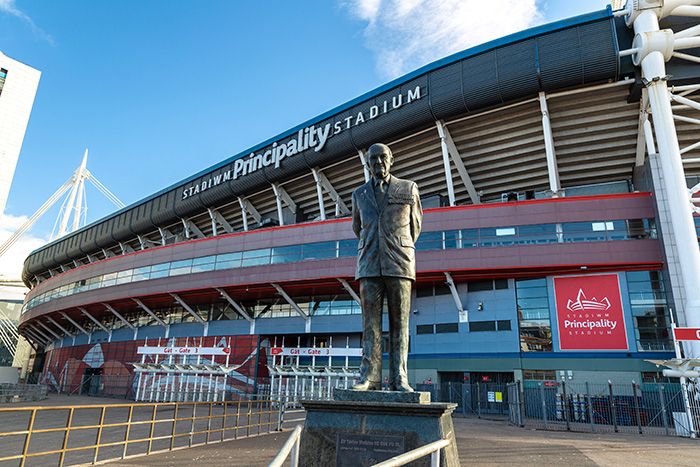Ensuring Connectivity During Football’s Festive Frenzy

By Neil Barnes, Head of Partnerships at connectivity infrastructure‑as‑a‑service provider Freshwave. Freshwave has connected major stadiums like Principality Stadium and supported high‑profile events such as the 2012 Olympic Games.
The festive period is one of the busiest times for football stadiums, with packed fixture lists, holiday‑themed events, and crowds eager to enjoy the season’s atmosphere. Heightened demand during this time poses unique challenges for stadium managers, as mobile networks are pushed to their limits.

For stadium managers, ensuring robust connectivity is critical to meeting these expectations.
Connectivity is also key to helping fans stay connected with the group they’ve gone to the game with, a particular concern during family outings. Parents, for instance, often rely on mobiles to stay in touch with children who have headed off to purchase food or use stadium facilities. In large crowds, insufficient network capacity can prevent calls or messages getting through, causing anxiety and disrupting the enjoyment of the game.
But it’s not just fans who rely on mobile connectivity. Security teams, operational staff, and emergency services depend on real‑time communication to coordinate effectively. With thousands of people in one place, a robust network ensures quick responses to potential incidents, keeping everyone safe and allowing stadium events to run smoothly.
Hospitality staff also rely on mobile connectivity to track inventory in real time, coordinate replenishments efficiently, and process orders swiftly, whether through smartphone apps or on‑site digital systems. With over half of fans now preferring to order food and drinks via smartphones or touchscreens2, reliable mobile connectivity is essential to maintaining smooth front‑of‑house operations.

For stadium managers, selecting the right mobile connectivity solution depends on the size and design of the stadium. Small cells, for example, are an excellent choice for venues with up to 30,000 seats. These systems provide consistent, high‑quality mobile coverage, and the latest advancements allow all the UK mobile network operators to be delivered via a single system. This ensures that every fan can connect seamlessly, no matter their provider. For larger stadiums, a distributed antenna system (DAS) is the more appropriate solution to meet the mobile capacity needs of fans. By evenly distributing signals across high‑demand areas, DAS networks handle the heavy data usage typical of major events.
Private networks, meanwhile, present another compelling solution, particularly for staff and operations. By providing a dedicated network for security, hospitality, and operational teams, private networks ensure these critical functions are not competing for bandwidth with thousands of fans. This dedicated connectivity enables staff to respond quickly, maintain smooth service levels, and ensure that events run as efficiently as possible.
Planning for these systems requires attention to unique architectural features, such as retractable roofs, which can affect radio frequency performance. Thoughtful design ensures that connectivity is assured regardless of crowd size or venue layout. Moreover, adopting scalable systems that are multi‑operator and upgradable allow stadiums to meet future demand and ensure that facilities remain competitive as technology and fan expectations evolve.

Football’s festive frenzy highlights the importance of seamless connectivity not only for fan enjoyment but also for safety and operational success. With the right digital infrastructure in place, stadium managers can deliver an unforgettable experience, ensuring fans and staff alike enjoy the magic of stadium events during the busiest time of the year.
1 & 2: Ericsson: Connected stadiums – connected fans: https://www.ericsson.com/en/small‑cells/stadium











































